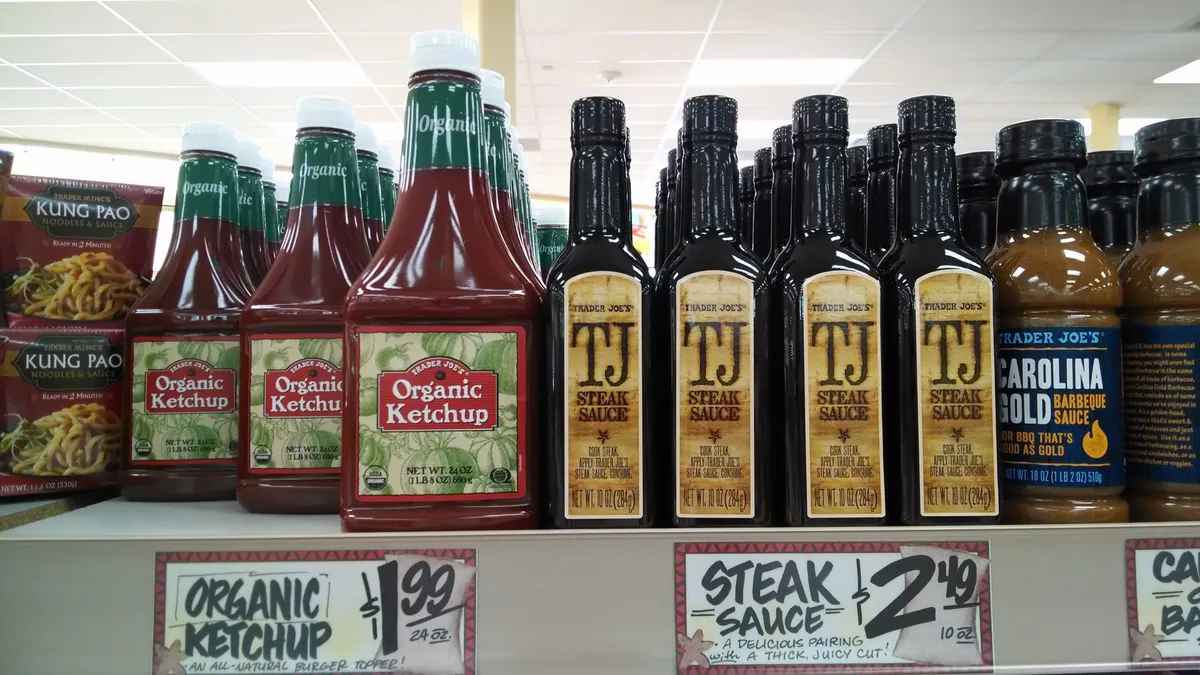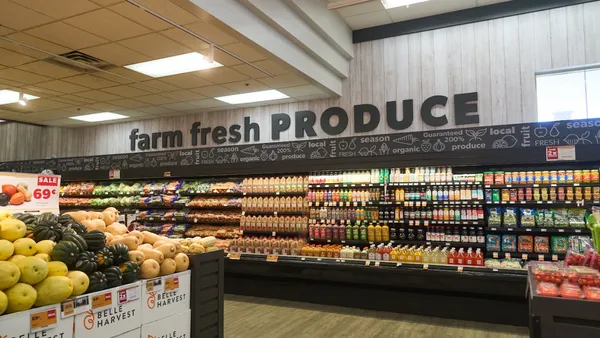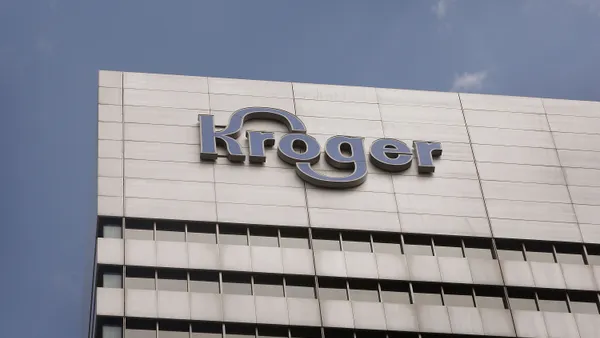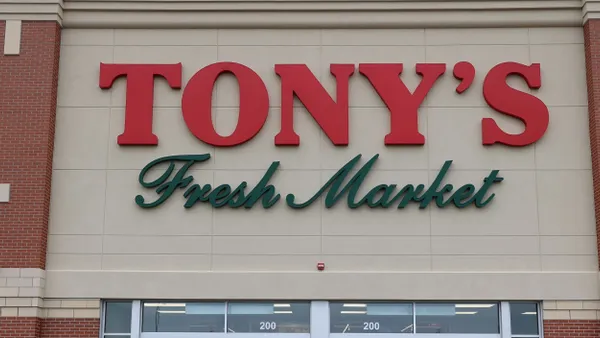Dive Brief:
- Trader Joe's has once again been named the top U.S. grocery retailer, according to the second annual Retailer Preference Index from customer data science firm dunnhumby. The index used data from a nationwide survey of 7,000 U.S. households to evaluate the 56 largest grocery retailers' financial performance and consumer emotional sentiment.
- Findings from the survey were used to rank retailers across the seven criteria of price, quality, digital, operations, convenience, discounts/rewards and speed. Dunnhumby credits Trader Joe's winning ranking to its strong customer service, small format stores, private label assortment and brick-and-mortar-only presence. Together, these components offer Trader Joe's customers a convenient, cost-effective and rich in-store experience.
- According to a press release from dunnhumby, retailers who focus their business on superior value perception, which is a combination of price and quality, tend to have the most financial success and the strongest emotional bond with consumers. Other retailers rounding out the top five in the index include Costco, Amazon, H-E-B and Wegmans.
Dive Insight:
One of the most notable findings in the dunnhumby report is that Trader Joe's remains in a top spot, despite — and possibly because of — its lack of e-commerce. While this could work against the company in the long run, for now, it makes it possible for the retailer to keep prices low and keep the in-store shopping experience quick and focused. Trader Joe's knows what its customers' needs and wants are, and it remains committed to keeping them happy.
Another success cited in the report is the limited SKU count and exceptional price and value that Trader Joe's offers, which has won shoppers over and helped them create an emotional bond with the grocer. Indeed, while it may have fewer total products than traditional grocery stores, customer affinity for Trader Joe's inexpensive, high-quality private label products is well documented — and well worth the shopping trip for most loyal customers.
The formats and services offered among the top-ranked quartile of grocers in the dunnhumby index span a wide variety. While Trader Joe's operates as more of a small, neighborhood market, Amazon and Costco are bona fide national retail giants. H-E-B and Wegmans, while more traditional, have regional footprints as opposed to Trader Joe’s national reach. What these retailers share is exceptional value, an assortment of products (especially private label) that customers want and strong customer service. Trader Joe's ability to maintain the number one ranking in the coming years will likely depend on how these other retailers evolve, and how customer preferences develop as the grocery industry continues to change.
Despite its overall ranking, Trader Joe's did not take the top spot in every criteria. Aldi was ranked top for price, Wegmans won for quality, Amazon won the digital category and Walmart got the top spot for convenience. Clearly, a number of retailers are resonating with consumers when it comes to their various grocery shopping needs. The survey shows that while customers are loyal to retailers, they are also willing to go elsewhere to fill in any gaps.
The biggest takeaway with this, and similar research, is that grocery retailers must pay attention to more than one capability or specialty. While Trader Joe's has fierce competition, the totality of what the grocer can offer has clearly connected with its shoppers, who continue to embrace the Trader Joe's experience year after year.













